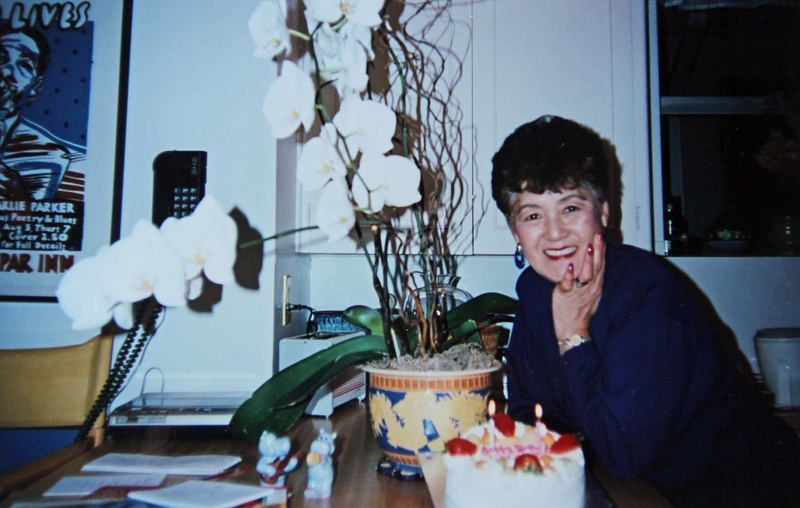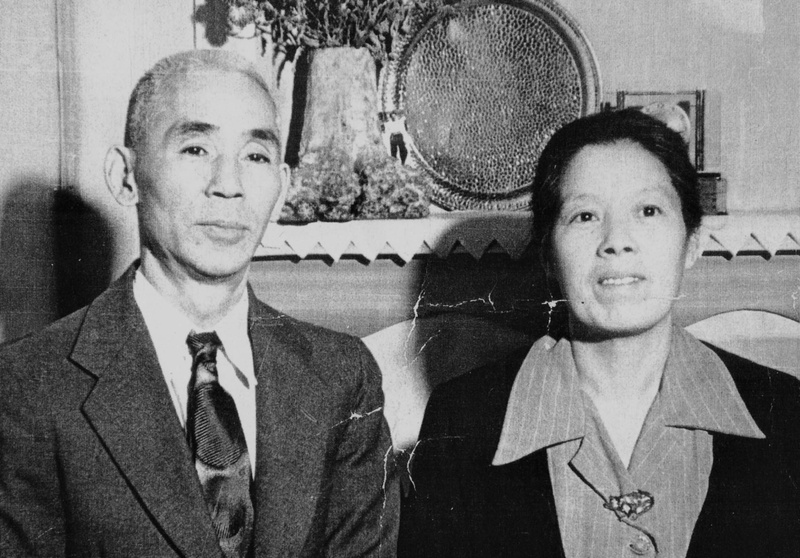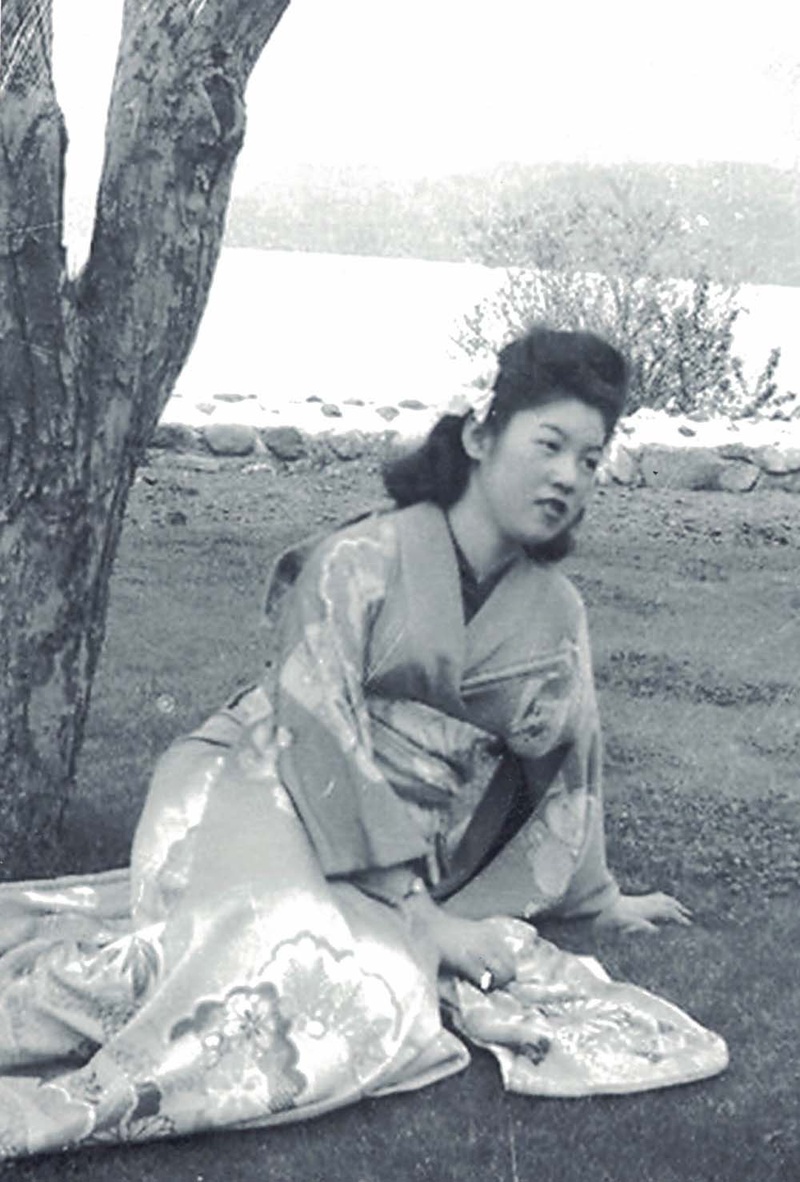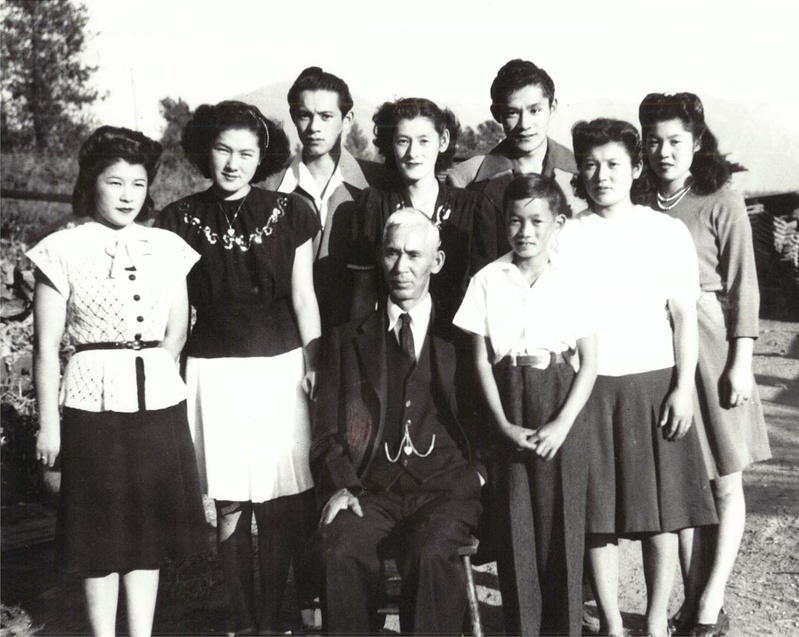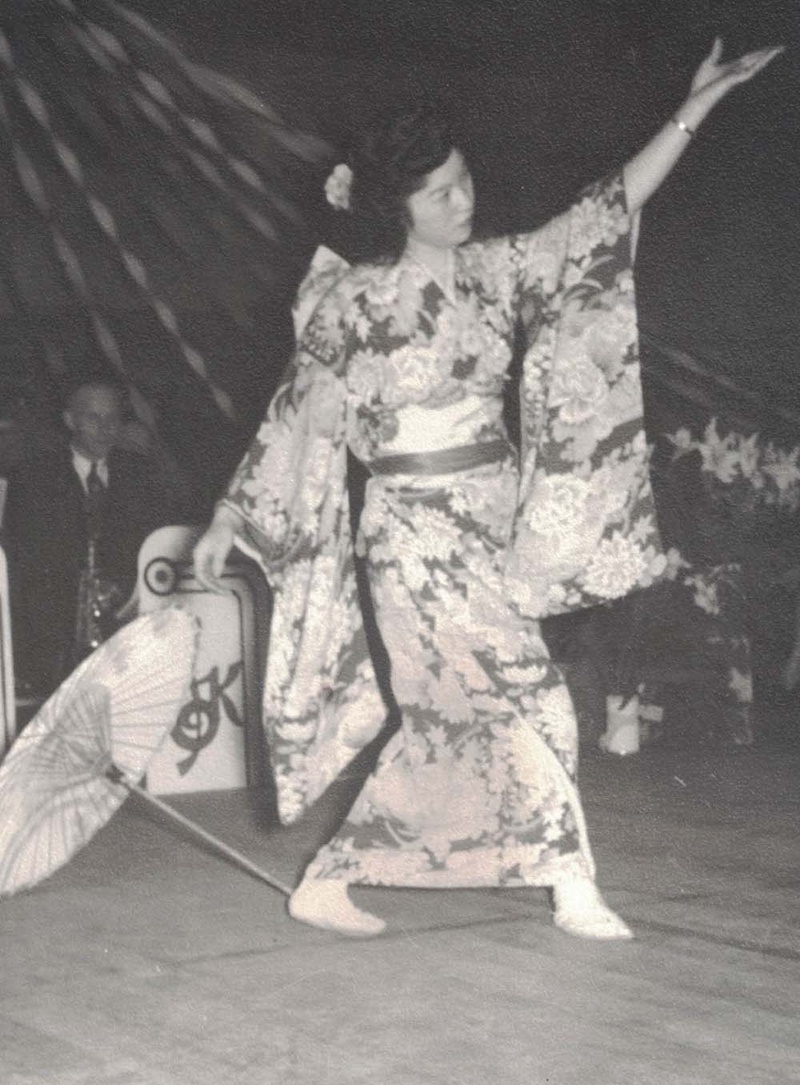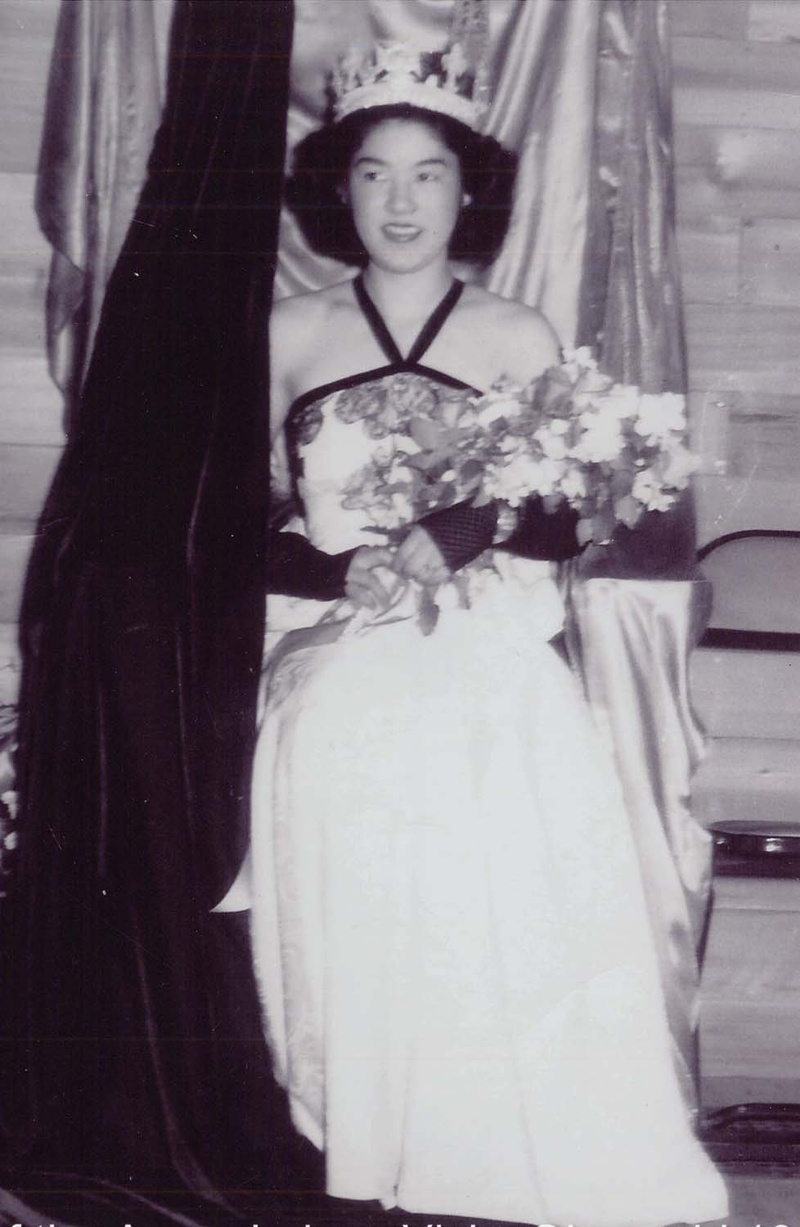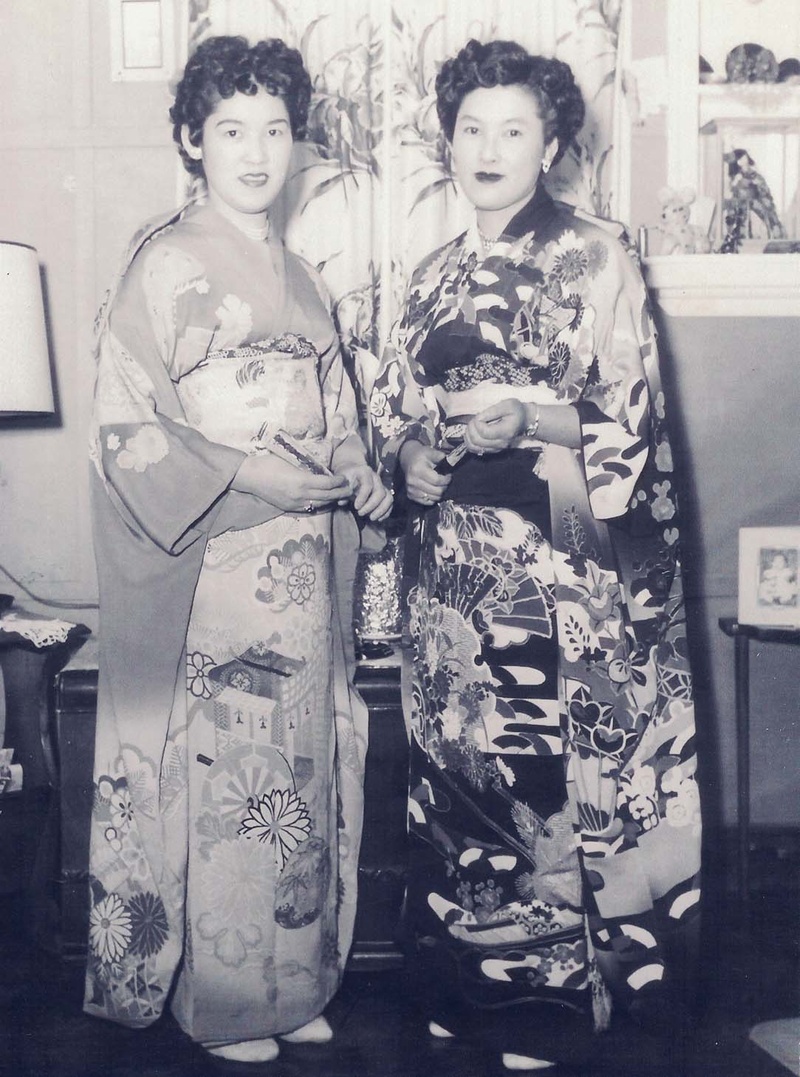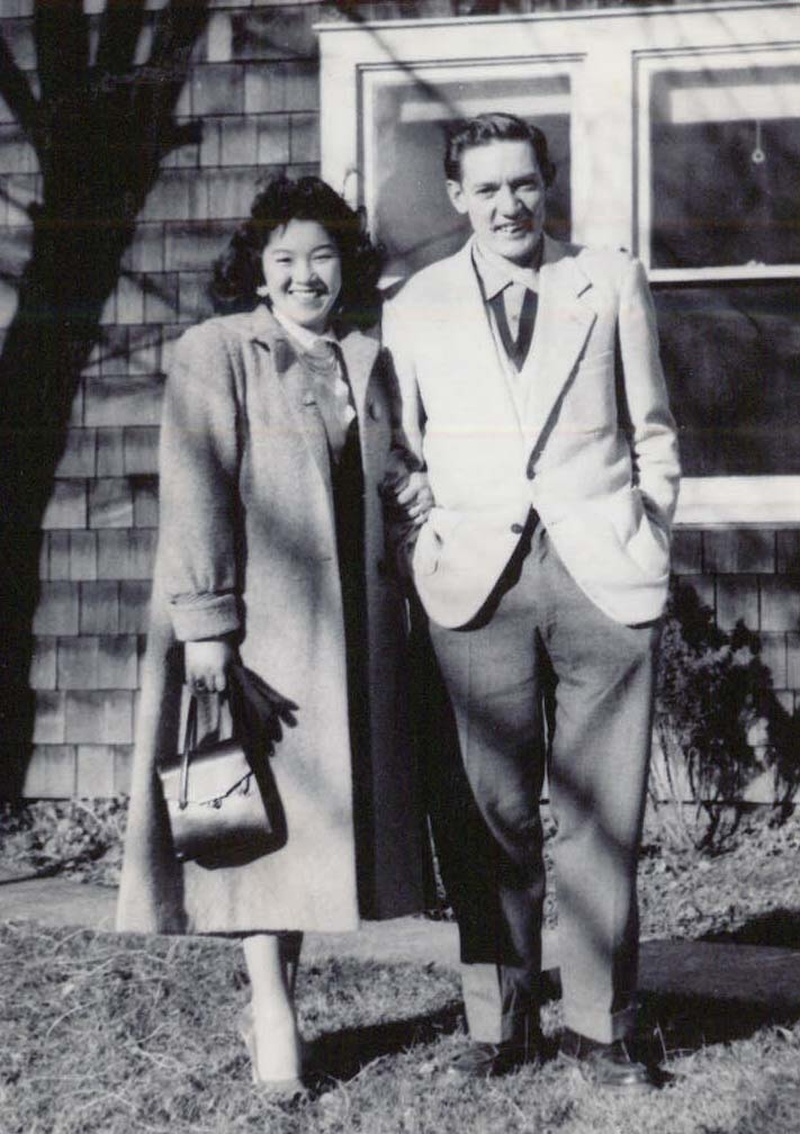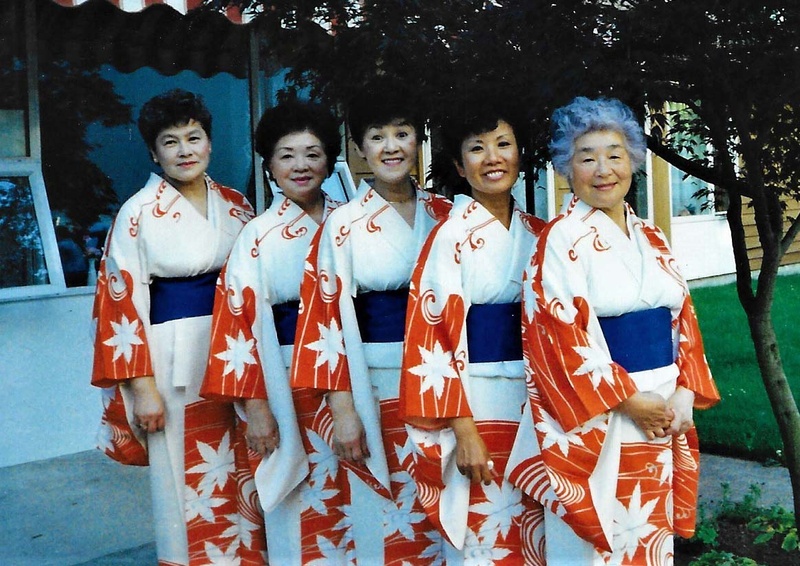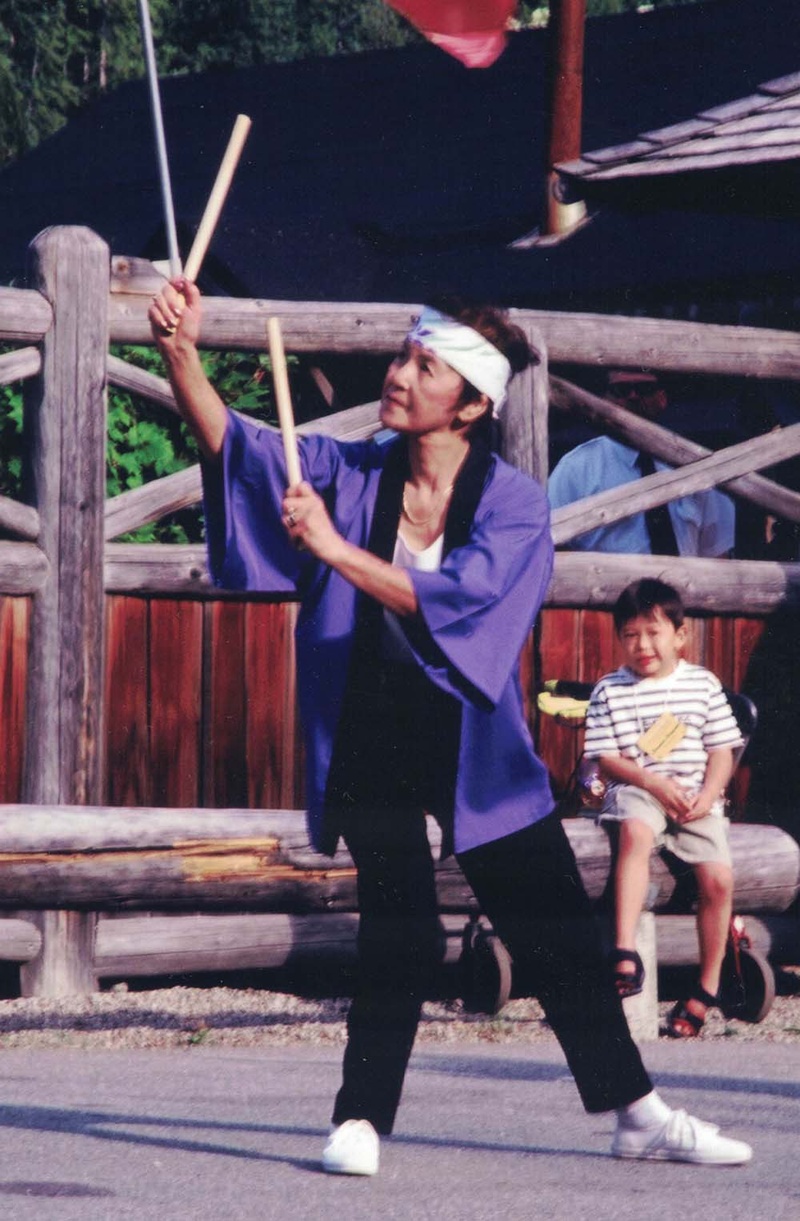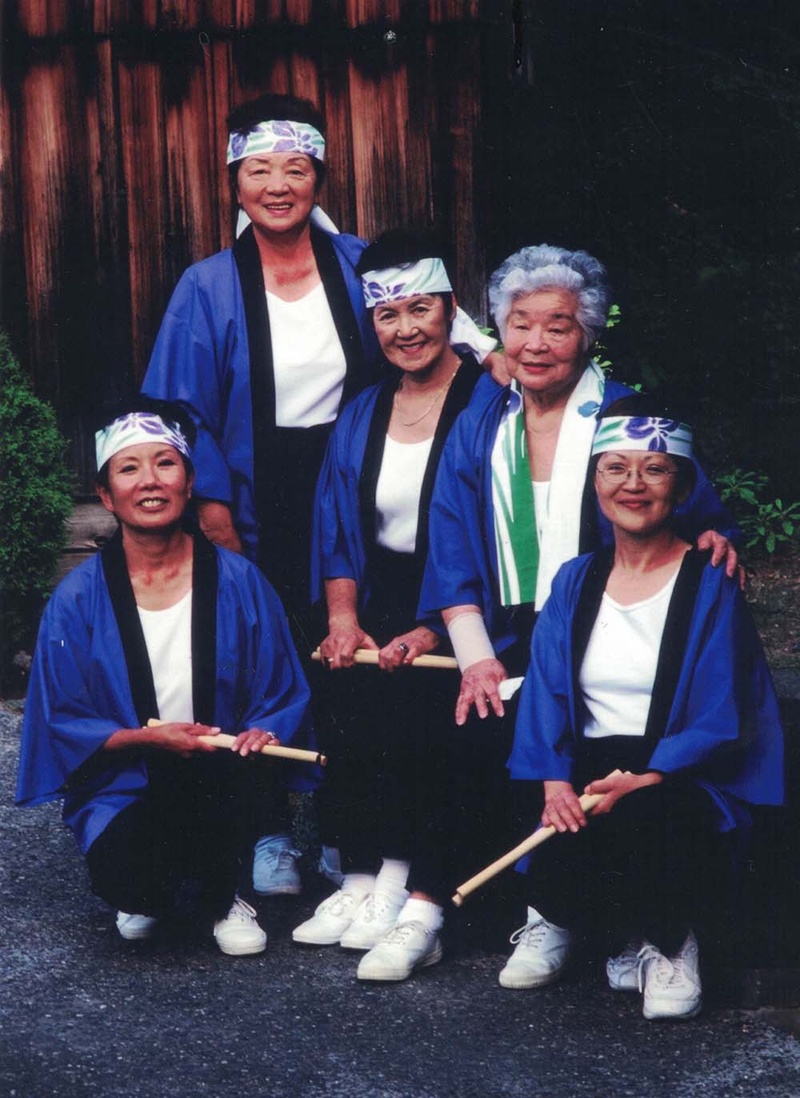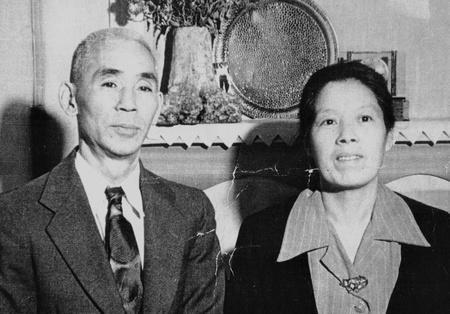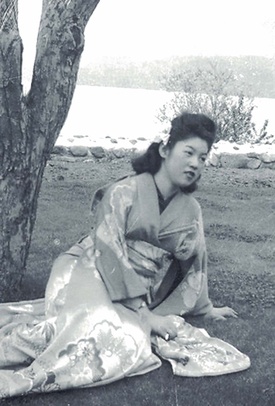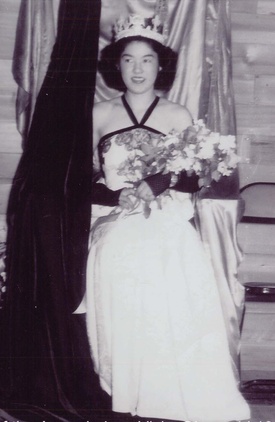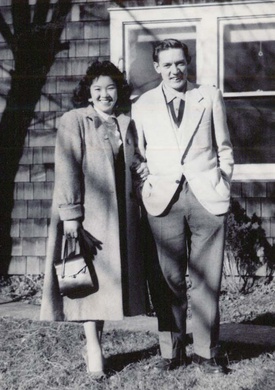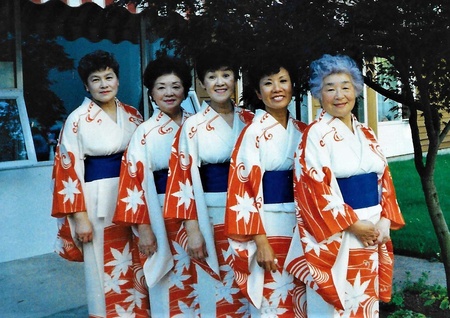Editor's Note: “Vicky” Yuriko Barrow (nee Obayashi) wrote this life history at age 69. Vicky passed away on June 25, 2005 at the age of 74. It was submitted to Nikkei Images by Hollis Ho, daughter of Vicky Barrow. Hollis has added names for clarity, and made two brief additions of facts shared with her by her mother that are relevant to the story.
* * * * *
My father, Fusajiro Obayashi, immigrated from Shika-ken, Japan to Canada in 1906. He managed to find employment at the Rat Portege Sawmill. After five years of long, hard labour, he saved enough money to go back to Japan to marry my mother, Toyo Matsumoto. Together, they returned to Canada to make their home and settled in the Kitsilano district in Vancouver, British Columbia (BC).
My parents had nine children—four sons and five daughters. I am the eighth child, born Victoria Yuriko Obayashi on September 8, 1930. We were all born at home on West 2nd Avenue in Vancouver, with the help of a mid-wife.
Mom and Dad were of the Buddhist faith and we all attended church regularly. They were both warm and caring, and instilled in us the importance of keeping family ties strong. Though our parents are no longer with us, we continue to be a close-knit family.
In Vancouver, after years of long hard work, my parents managed to purchase a two-storey, ten-unit apartment building at 1661 West 2nd Avenue, and, also, a house which they rented out. Our family occupied three units in the apartment building with father tearing down walls as the family grew. My parents also owned and operated a barber shop in this building for 20 years prior to the relocation to the interior of BC.
With the onset of World War II, my father was immediately ordered to Gosnell (50 miles north of Jasper, Alberta) to work on the railway. My mother was left to fend for herself and children until September 1942 when we were relocated to New Denver, BC, which was one of the many internment camps scattered throughout the interior.
In March of 1942, the evacuation of all the citizens of Japanese ancestry to various camps began and was completed by October 15, 1942.
It was soon after my twelfth birthday in September 1942 when my mother and siblings boarded the train to New Denver. At the time it seemed like an adventure to me – little did I know what hardship this was for my Mom. In later years, I began to realize this anguish, humiliation, and pain my parents endured during this ordeal. Uprooted from their secure environment and not knowing what to expect in the future must have been utterly devastating. I know they suffered immeasurably.
In New Denver, we were finally reunited with Father after nine months of separation. As Dad knew carpentry, he had been sent to New Denver to assist with the building of the “shacks” for living quarters.
My formative years were spent happily in Vancouver where I attended Henry Hudson Elementary School, and I also attended the Japanese Language School daily from 4:30-6:00 pm. In September 1942, I was looking forward to attending Kitsilano Junior High, but it was not to be.
Once settled in camp, we faced another obstacle. Japanese children were barred from attending regular schools. Fortunately, the Catholic nuns learned of our plight and started Notre Dame High, converting a large house into classrooms. As there were too many students, the United Church missionaries also came to our aid and opened Lakeview High in the local Odd Fellow Hall. I completed high school at Notre Dame.
When we first arrived in New Denver there was much hostility among the Caucasian community. This is when I became fully aware of discrimination. Verbal abuse and bruised spirits were experienced almost daily. It was truly a traumatic time.
In the spring of 1945 when the war was all but over, the government issued a “Repatriation Order” to go to Japan or move east of the Rockies. My father stood firm in his decision to remain in Canada.
In 1945, Nakusp was a thriving logging and sawmilling town. My father and brothers found employment in the mill. Mother, my younger brother, and I remained in New Denver until I finished my schooling and joined the rest of the family in 1947.
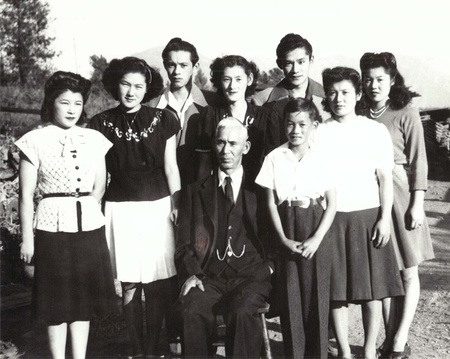
On April 1, 1949, the ban was lifted and Japanese Canadians were permitted to back to the West Coast. My father was not eager to move to Vancouver as all their personal possessions and properties were lost and their former life was completely obliterated. He opted to settle in Nakusp, a small village just 30 miles west of New Denver.
When I first arrived in Nakusp I was totally lost—my school friends and their families were dispersed to various parts of the country and I missed them. My parents were concerned that I was not mingling with children my age and encouraged me to join “Teen Town.” This was the best advice I got. I was pleasantly surprised that the members were warm and friendly and accepted me whole-heartedly. To this day, I remain friends with many of the people I met as a teenager. I met my husband, Bill Barrow, then.
In late 1947 I found employment at the Leland Hotel which was owned and operated by Mr. and Mrs. Barrow who later became my in-laws. Their son Bill and I were married in January 1953. Inter-racial marriage was quite uncommon in those days but we were fortunate to have the blessings of both families. We travelled to Coeur d’Alene, Idaho to get married, but were turned away as interracial marriage was illegal in that state unless one was from Hawaii. We then had to travel to Spokane, Washington where interracial marriages were legal.
We were blessed with two sons and one daughter. We are now also blessed with two beautiful grandchildren.
After our marriage, I did not work until all my children were in school. I began working part-time at a local food store for several years until management changed hands. I left to work full-time in the Payroll Department for a logging firm. I stayed with this job for 15 years but unfortunately when the company began down-sizing, I was among the many who were laid-off. I then went to assist my sister-in-law at a Men’s Clothing Store which I co-owned with her for 22 years. We sold the business in 1993 and I have been enjoying retirement since.
Yes, I have seen many, many changes throughout my life. I vividly remember using washboards to do the family laundry. We certainly didn’t have the luxuries we have today. It’s difficult to keep pace with technology as it is constantly and rapidly advancing and much too quickly for a senior like me.
* This story was republished from Nikkei Images, vol. 22, issue 1.
© 1999 Vicky Yuriko Barrow


